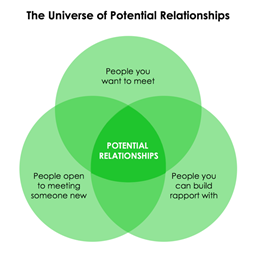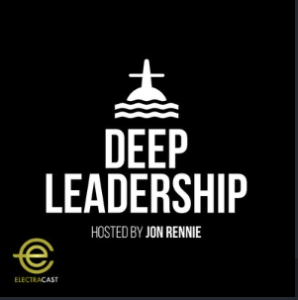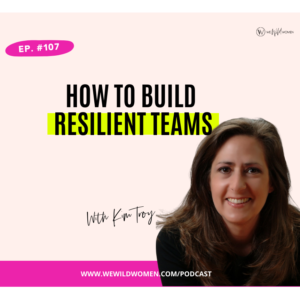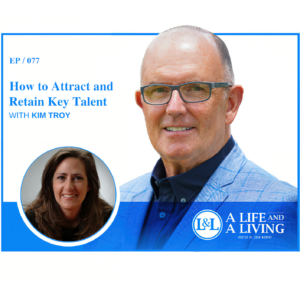In Clicksand, I explore the concept of the Universe of Potential Relationships. There are three overlapping circles: the people you want to meet, the people who are open to meeting someone new, and the people you can build rapport with. You can only build a relationship with the people who meet all three of those conditions—where all three circles overlap.

When we begin working with new clients at Civilis Consulting, we find that many of them have been making mistakes related to one (or more) of those three circles. In a previous article I spelled out ways to critically think through who you want to have a relationship with (it’s not always obvious!).
Now, let’s look at the flip side: people open to meeting someone new.
Out of control
The first—and most important—point to make about whether people are open to meeting someone new is that you have no control over it. You can attempt to open a dialogue, but it is the other person’s choice whether to accept your overture or not. And if they choose not to, you need to respect their decision—especially if you ever really do want to have a meaningful business relationship with them. Too many companies these days (especially those that believe what online marketers and tools tell them) keep hammering away when they really want to meet someone. We all get emails that start out with some variation of “You didn’t respond to my last email, so…” Then, they go on to explain why it is so important that you let them into your life. They think that if they are persistent enough, people will eventually relent and respond, allowing them to move the relationship forward.
Online marketing companies like HubSpot call this irritating persistence “nurturing,” and build tools that encourage the behavior. But no matter what HubSpot calls it, in truth, it’s badgering. It even verges on stalking.
There is absolutely no way you can try to begin a relationship with someone by badgering (or stalking) them and have it turn into a healthy, long-term relationship. So, the bottom line is: If you want to really build solid, authentic long-term relationships, start by respecting the other person from the very beginning. If they don’t want a relationship, don’t push it.
But that doesn’t mean all is lost.
The more things change
One fantastic characteristic of people who don’t want to meet anyone new now, is that eventually they will want to meet someone new. It’s a sales axiom that “no” just means “not yet.”
If you sell a product or service that your ideal customer needs, it is only a matter of time before they are open to looking at a new solution. The secret is learning what the triggers are that will cause them to move to the “willing to meet someone new” circle. There are many such triggers, including:
- Performance problems: They reach a point where they need to make a change in order to improve their results.
- Management change or turnover: New management comes in or old management leaves, resulting in an openness to new ideas.
- Macroeconomic factors (recession, low/high unemployment, etc.): Changes in the economy (in the country or just in a particular industry) can cause businesses to become open to new relationships.
- Non-economic external factors (natural disasters, news events, etc.): Businesses are often affected by legal, environmental, criminal, or other societal factors outside of their control.
- Supplier failure: The supplier they have been happy with previously lets them down, causing them to need to find a new solution.
- Competitor change: A new competitor appears, or an existing competitor makes a change that causes them to reexamine their own business model.
The roadmap
The bottom line, though, is that if your business is built on authentic, long-term relationships, pay extra attention to the needs and desires of the people you want to have relationships with. Being pushy and trying to move things along more quickly so you can meet your own goals or deadlines might feel good in the short run, but it will only ruin your chances of long-term success.
Spend time thinking about the people you want to start relationships with. What are their lives like? How far they are willing to go (or not go) now? And prepare for the moment when their life will change, causing them to move into the “willing to meet someone new” circle.










